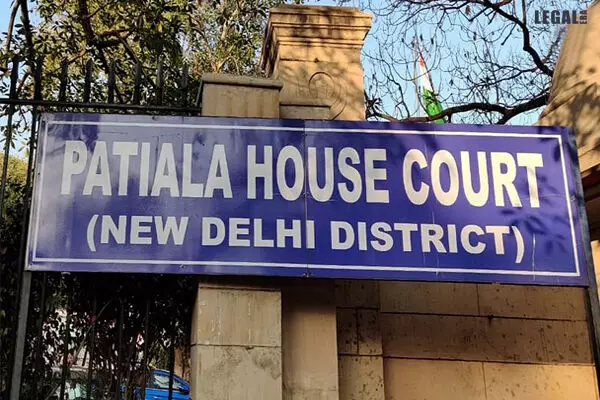- Home
- News
- Articles+
- Aerospace
- AI
- Agriculture
- Alternate Dispute Resolution
- Arbitration & Mediation
- Banking and Finance
- Bankruptcy
- Book Review
- Bribery & Corruption
- Commercial Litigation
- Competition Law
- Conference Reports
- Consumer Products
- Contract
- Corporate Governance
- Corporate Law
- Covid-19
- Cryptocurrency
- Cybersecurity
- Data Protection
- Defence
- Digital Economy
- E-commerce
- Employment Law
- Energy and Natural Resources
- Entertainment and Sports Law
- Environmental Law
- ESG
- FDI
- Food and Beverage
- Gaming
- Health Care
- IBC Diaries
- In Focus
- Inclusion & Diversity
- Insurance Law
- Intellectual Property
- International Law
- IP & Tech Era
- Know the Law
- Labour Laws
- Law & Policy and Regulation
- Litigation
- Litigation Funding
- Manufacturing
- Mergers & Acquisitions
- NFTs
- Privacy
- Private Equity
- Project Finance
- Real Estate
- Risk and Compliance
- Student Corner
- Take On Board
- Tax
- Technology Media and Telecom
- Tributes
- Viewpoint
- Zoom In
- Law Firms
- In-House
- Rankings
- E-Magazine
- Legal Era TV
- Events
- News
- Articles
- Aerospace
- AI
- Agriculture
- Alternate Dispute Resolution
- Arbitration & Mediation
- Banking and Finance
- Bankruptcy
- Book Review
- Bribery & Corruption
- Commercial Litigation
- Competition Law
- Conference Reports
- Consumer Products
- Contract
- Corporate Governance
- Corporate Law
- Covid-19
- Cryptocurrency
- Cybersecurity
- Data Protection
- Defence
- Digital Economy
- E-commerce
- Employment Law
- Energy and Natural Resources
- Entertainment and Sports Law
- Environmental Law
- ESG
- FDI
- Food and Beverage
- Gaming
- Health Care
- IBC Diaries
- In Focus
- Inclusion & Diversity
- Insurance Law
- Intellectual Property
- International Law
- IP & Tech Era
- Know the Law
- Labour Laws
- Law & Policy and Regulation
- Litigation
- Litigation Funding
- Manufacturing
- Mergers & Acquisitions
- NFTs
- Privacy
- Private Equity
- Project Finance
- Real Estate
- Risk and Compliance
- Student Corner
- Take On Board
- Tax
- Technology Media and Telecom
- Tributes
- Viewpoint
- Zoom In
- Law Firms
- In-House
- Rankings
- E-Magazine
- Legal Era TV
- Events
Delhi Court: Landlord Cannot Refuse to Accept Possession of Property from the Tenant on the Ground of Damage Caused to Property

Delhi Court: Landlord Cannot Refuse to Accept Possession of Property from the Tenant on the Ground of Damage Caused to Property
The Patiala House Court in Delhi has observed that it is trite law that a landlord cannot refuse to accept possession of the suit property on the ground that property has been damaged.
The District Judge Justice Vineeta Goyal stated that it is well-settled law that the landlord cannot refuse to take over the possession of the suit property upon determination of lease on the ground that the property has been damaged or not restored to its original position.
In the present case, a suit was filed for the recovery of Rs. 1,52,77,020 along with interest against Devyani International Ltd. (tenant/defendant) which runs food outlets such as Pizza Hut, KFC, etc. in India.
The plaintiffs/landlord, argued that the tenant had failed to make timely rental payments and that they had occupied the leased property without paying rent.
Per contra, the tenant contended that it had submitted its termination notice to the landlord and had vacated the premises in a timely manner after giving three months’ notice.
In this regard, the tenant submitted before the Court that it had offered to give the keys to the vacated premises to the landlord. However, the landlord had, refused to accept the keys, and accept the possession back citing pending rental dues and damage to the premises, the tenant contended.
The landlords retaliated by arguing that the property was damaged and that some goods were lying in the basement. They also asked for a claim for recovering arrears of rent.
The Court on perusal of Section 108 of the Transfer of Property Act (TPA) which provides for Rights and duties of lessor and lessee observed that, “It is well settled that the landlord cannot refuse to take over the possession of the suit property upon determination of lease on the ground that the property has been damaged or not restored to its original position. It is equally well settled that in the event of refusal of landlord to take possession offered by the tenant, the possession shall be deemed to have been delivered to the landlord and the tenant shall not be liable to pay the rent thereafter.”
The Court on perusal of the WhatsApp conversation between the parties, which was recorded as evidence, found that the landlords had presented no evidence to support its claim for recovering arrears of rent.
The Court while placing reliance on the case of H.S. Bedi vs. National Highway Authority of India, while applying the well settled principles of law and following the dictum given in H.S Bedi case (supra) , it was established on record that defendant’s lease determined in the month of October, 2020 when the defendant offered the possession to the landlord-plaintiff who deliberately chose not to take the possession, therefore, the possession of the suit property was deemed to have been delivered to the landlord-plaintiff who was not entitled to the rent thereafter.
Nevertheless, the Court granted partial relief to the landlords as it found that they were entitled to rent payments for the period between April 2020 to October 2020 (that is, when the tenant was still occupying the premises), after adjusting a security deposit paid earlier by the tenant.
Senior advocates Pawanjit S Bindra and Advocate Vinayak Marwah appeared on behalf of the plaintiffs/landlord.
Advocates Bharat Chugh, Mayank Arora, Aditya Narayan Choudhary, and Ashray Chopra appeared for the defendant/tenant.


